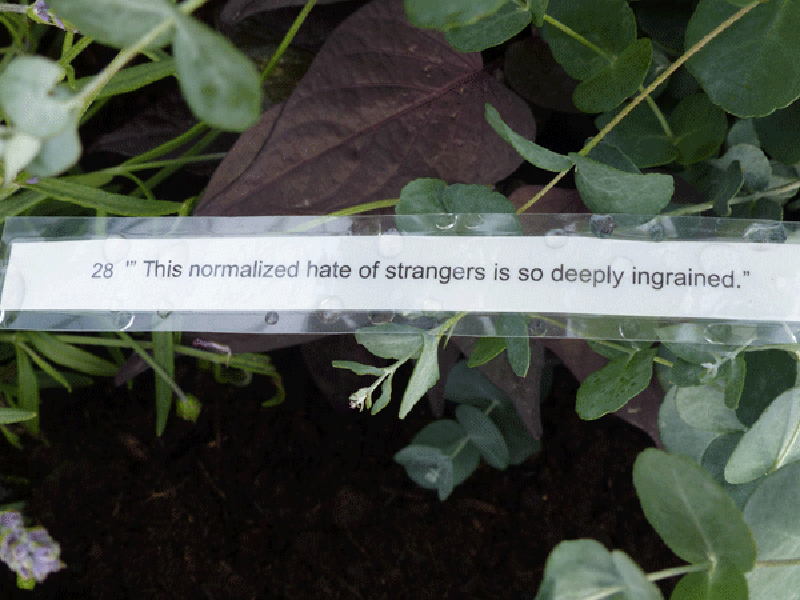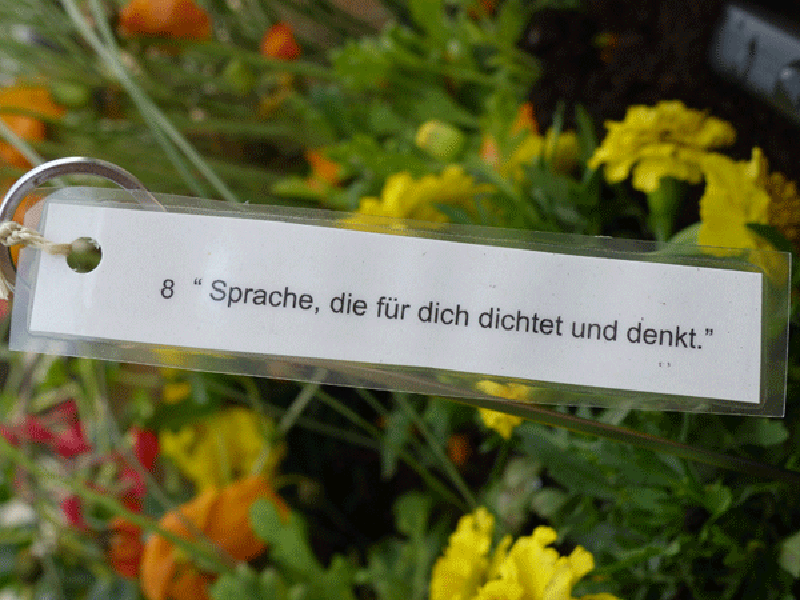ART-PREVIEW:Eleni Papaioannou-The Philologist’s Garden
 Eleni Papaioannou’s artistic practice examines the relationship between artwork and urban space, the notion of the ephemeral, and the interrelation between spatial movement, material and sound. She creates large-scale site-specific installations and through her choice of locations, makes associations between the work and architectural space. Her work is usually shown outside the confines of exhibition spaces, the audience stumbling upon the work as they pass by.
Eleni Papaioannou’s artistic practice examines the relationship between artwork and urban space, the notion of the ephemeral, and the interrelation between spatial movement, material and sound. She creates large-scale site-specific installations and through her choice of locations, makes associations between the work and architectural space. Her work is usually shown outside the confines of exhibition spaces, the audience stumbling upon the work as they pass by.
By Efi Michalarou
Photo: Eleni Papaioannou Archive
Eleni Papaioannou, an artist based in Berlin, presents her exhibition / site specific installation “The Philologist’s Garden” at Epigraphic Museum in Athens, the is a study on the concept of the garden into the urban space and its symbolic function as a cultural space of reflection, of exchange of views and knowledge through dialogue. The starting point of her project is Plato’s view of gardens as spaces for philosophical debate and Viktor Klemperer’s book “The Language of the Third Reich: A Philologist’s Notebook”, that is a stydy of the language of the Nazi era originally published in German in 1957 and translated into English in 2000. Victor Klemperer was a professor of French literature at Dresden University when the Nazis came to power in 1933. He was forced soon after to relinquish that post due to laws forbidding Jews from holding positions at universities. He survived the Holocaust thanks both to his status of being married to an Arya’ woman and to an enormous stroke of luck allowing him to escape Dresden after it was bombed by Allied forces in February 1945. After the war, Klemperer joined the Socialist Unity Party of Germany, and recovered a university post at the University of Leipzig. He became a significant cultural figure in East Germany, lecturing at the universities of Greifswald, Berlin and Halle. He was a delegate of the Cultural Association of the GDR in the GDR’s Parliament (1950-58). “The Language of the Third Reich: A Philologist’s Notebook”, combines memoir, history and philological discussion. It consists of 36 short chapters, each focusing on a word, phrase or theme, as well as an introduction and an afterword. The writer investigates, reflects upon and analyzes at the same time the ways in which language has been gradually shaped, eroded and transformed to serve the political interests of the time. Eleni Papaioannou, selects the garden of Epigraphic Museum, a “place” with semantic references and historical power to appoint an archival -while personal- dialectic while quoting text excerpts both from Viktor Klemperer’s book as well as from current excerpts of Greek and international press. The phrases detached from their original version, running on an ambiguous way, leaving the viewer open questions as their sources remain initially hidden.
Info: Curator: Margarita Kataga, Epigraphic Museum, Tositsa 1, Athens, Duration: 19/5-15/7/18, Days & Hours: Tue-Sun 8:00-15:00, http://odysseus.culture.gr

